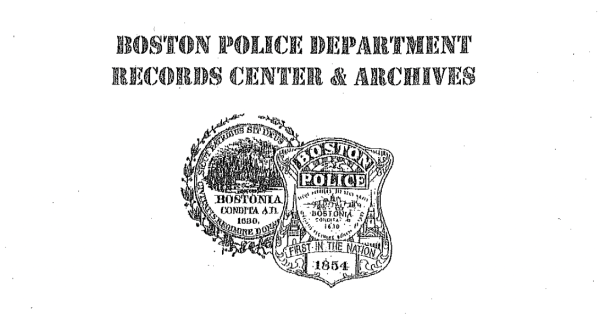June 14, 2022

A screenshot from the Patrick Rose files released by the city of Boston in June 2022.
The files from the mayor’s office arrived in reporters’ email inboxes early last Thursday afternoon. In between the redactions — an effort by the city’s lawyers to protect the victims — the hundreds of pages laid out in black and white the personnel papers of Patrick Rose Sr., the former police union president who pleaded guilty earlier this year to molesting a half dozen children.
Reporters had asked for the papers, and the Boston Globe had taken Mayor Michelle Wu’s predecessor to court over access to them in an effort to understand how Rose, who joined the police force in 1994, was able to stay on the force after the Internal Affairs department had sustained the criminal allegations in 1996.
Rose retired in 2018 after spending his entire career in Dorchester’s C-11 district. It wasn’t until August 2020 that he was arrested and charged with 33 counts of sexual abuse of children. He is now serving 10 to 13 years for his crimes.
The files had Rose’s police academy essay, in which he repeatedly mentioned the appeal of having the opportunity to mentor youth. “I believe that I can be a positive role model to and for the citizens of the city,” he wrote.
The files had the 1997 letter from Rose’s attorney, Thomas Drechsler, who worked for the Dorchester law firm of Finneran, Byrne, Dreschler, and O’Brien, demanding that his client be pulled from administrative duty and returned to full duty. Attached were affidavits from the victim and the victim’s guardian, backtracking on the allegations of sexual misconduct. Separately, the criminal case in court had been dismissed.
The files had the Boston Police Patrolmen’s Association (BPPA), the Dorchester-based union that Rose would later lead, swinging into action on Rose’s behalf through another attorney, who, in a letter, called the administrative duty a financial hardship for Rose since he was being denied lucrative paid details and overtime that police often seek to pad their paychecks. Eleven days later, the union filed a grievance. In 1998, the city’s office of labor relations denied the grievance.
Rose was reinstated to full duty despite the denial, and in 2014, he became head of the powerful union and led it for three years.
What’s missing from the files is a smoking gun explaining how that happened. In her letter to the City Council going over the release of the documents, Wu wrote that there is nothing documenting the decision not to discipline or terminate Rose: “To the best of our knowledge, no such city documentation exists.”
But do we need it? There is a through-line in these newly released files, as distinctive as the cobalt stripe found on a black-and-white “Blue Lives Matter” flag: The existence of a city bureaucracy, regardless of whether it was within City Hall or the BPPA’s union hall, for decades focused on protecting police instead of the people they’re supposed to serve. That was apparent, if not explicit, in the timeline of the affair that the Wu administration released alongside the Rose files.
In a call with reporters after the files' release, Wu said “horrible injustices” took place. “My hope is the release of this fuller file shows the larger context and continued urgency for the city of Boston and our police department to have the authority and the resources to take urgent action when there is evidence of criminal conduct, misconduct and to be able to immediately terminate officers after a violation of the public trust has been found.”
Asked whether Dreschler, who became a Superior Court judge a few months before Rose won the police union presidency in 2014, is culpable in the Rose matter, Wu noted she is an attorney herself and “it’s important for everyone to have access to representation.”
She added: “It doesn’t seem like there’s a single point of culpability here but a system that failed in many ways. Should we have the horror of having to deal with a similar situation today, under this administration, we would treat it differently. Even under the current structures and authorities and barriers to securing rapid action in disciplinary cases, given the structure of different agreements and contracts, there would be a push to terminate immediately.”
Wu is currently searching for a new police commissioner as city labor officials — who are joined by Lou Mandarini as a senior labor adviser to the mayor — prepare for collective bargaining for contracts with the police unions, which funneled money toward efforts to defeat her in last year’s mayoral race.
“Having clarity around which types of offenses or allegations the city and the police department should have the authority to move to immediate termination for, with evidence of criminal misconduct” is an important conversation to have, she said. “I’m hopeful and determined to ensure that we codify the lessons learned in this situation.”


